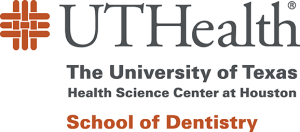


PhD, Microbiology | University of Wisconsin, Milwaukee
BS | Biochemistry and Molecular Biology | University of Colombo, Sri Lanka
Dr. Ransome van der Hoeven is an assistant professor of the Department of Diagnostic and Biomedical Sciences at UTHealth School of Dentistry in Houston. He earned a bachelor of science degree in biochemistry and molecular biology from the University of Colombo in Sri Lanka and a doctorate in biological sciences (microbiology) from the University of Wisconsin at Milwaukee. Dr. van der Hoeven completed his postdoctoral training at UTHealth McGovern Medical School in Houston.
The main focus of Dr. van der Hoeven’s research is to understand the mechanism of host-pathogen interactions in mucosal interfaces. Innate immune responses employed by mucosal surfaces are the first line of defense against invading pathogens. Using a simplified model system, the round worm C. elegans, Dr. van der Hoeven’s lab studies how pathogens attack their hosts and how the host responds to such attacks. C. elegans is an excellent model to study for answers to these questions because (a) the worm exclusively relies on inducible innate immune responses for defense (b) the architecture of intestinal cells of the worm are similar to human mucosal epithelial cells, and (c) the worms are transparent, enabling real-time gene expression to be tracked by fusing gene products to green fluorescent protein.
Human pathogens such as Enterococcus faecalis, Staphylococcus aureus and Pseudomonas aeruginosa, in combination with genetic, biochemical and molecular techniques, are used to study the mechanisms of pathogen detection by the host and to elucidate the signal pathways triggered in response to infection. Furthermore, Dr. van der Hoeven uses this model system to study both synergistic and antagonistic interactions between microorganisms of the gastrointestinal tract and the oral cavity.
Another aspect of Dr. van der Hoeven’s research is to understand the molecular mechanisms by which the opportunistic pathogen E. faecalis is able to survive and cause persistent secondary endodontic infections. The bacterium can survive prolonged periods of starvation and grow as a mono-infection in the absence of other microorganisms in the root canal system. Furthermore, E. faecalis has the ability to resist antimicrobials and common intracanal medications, and hence is a major clinical problem.